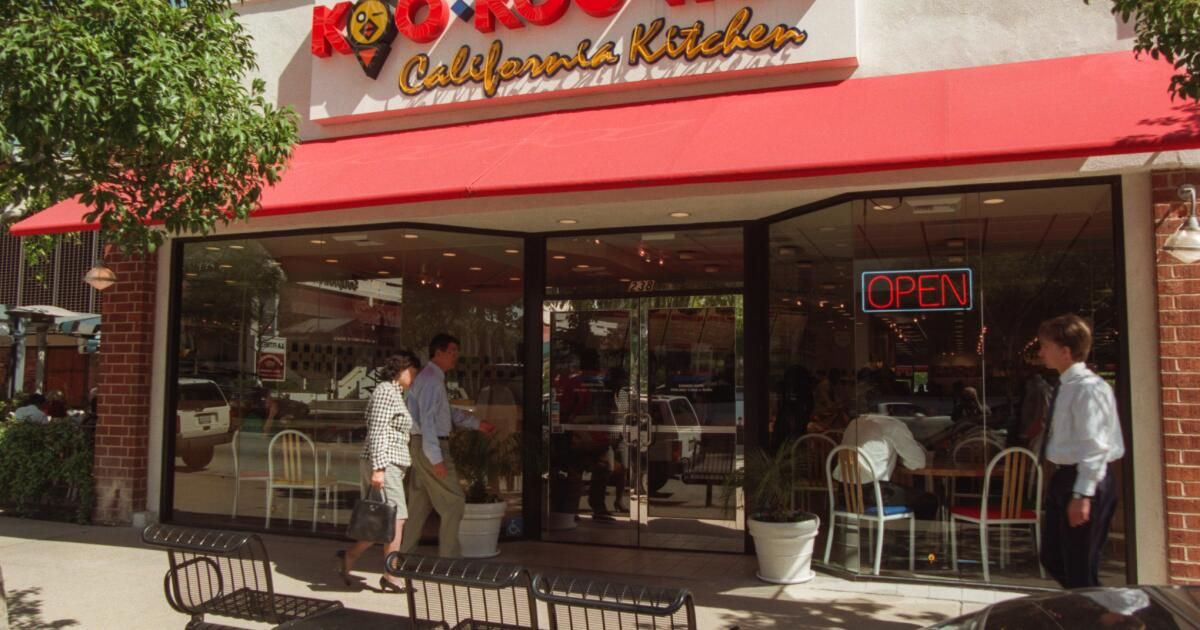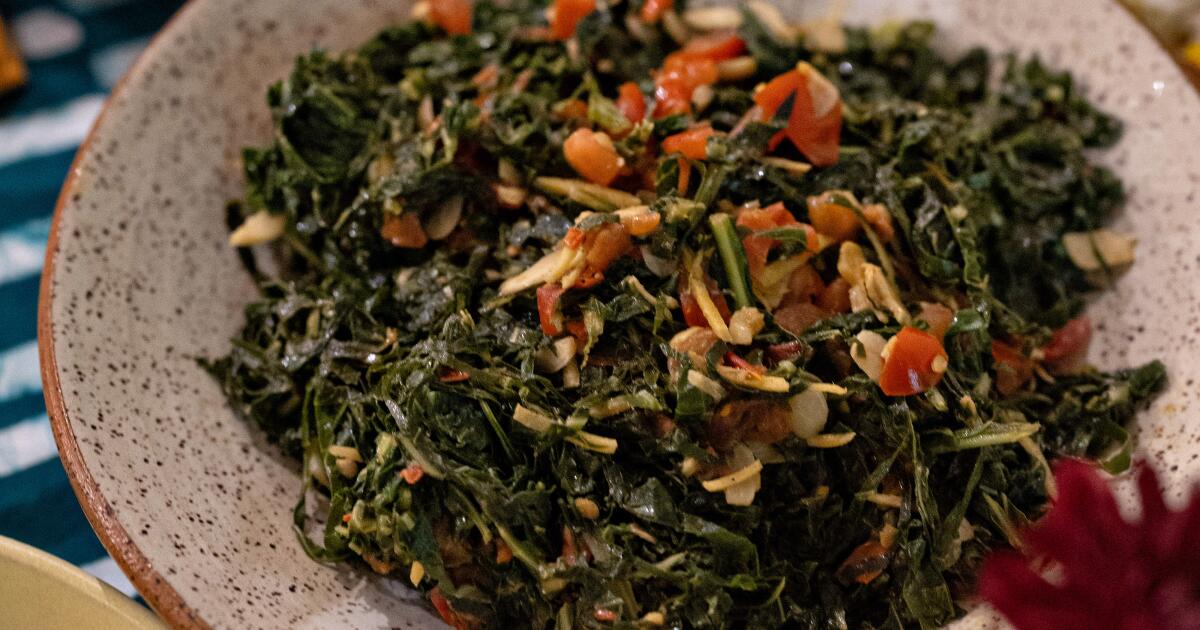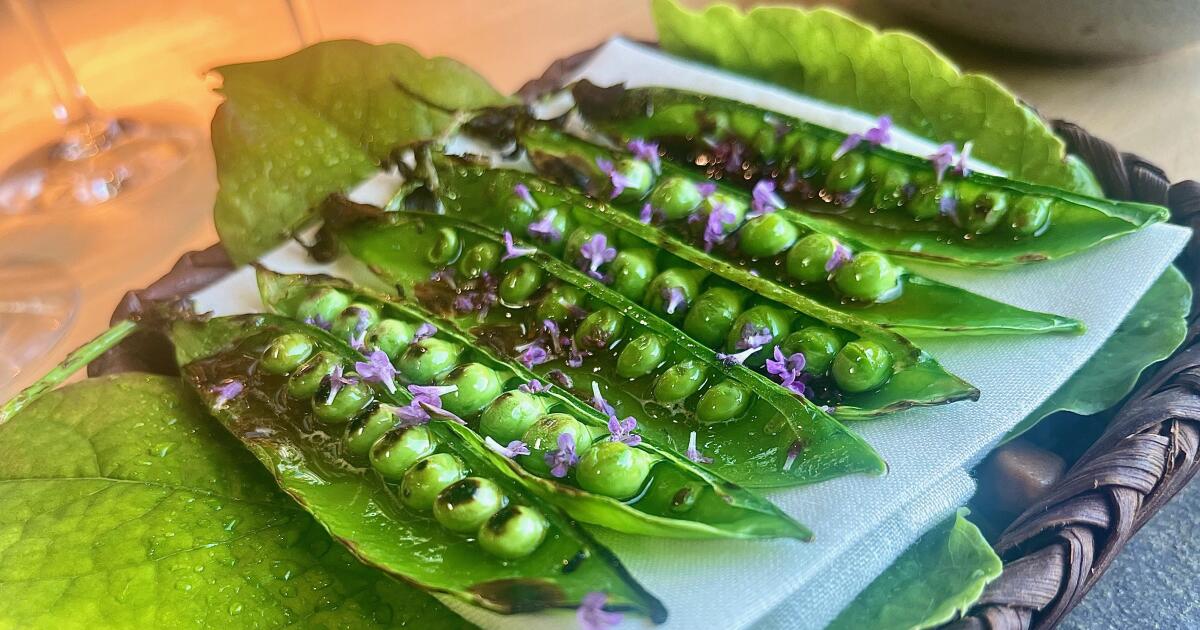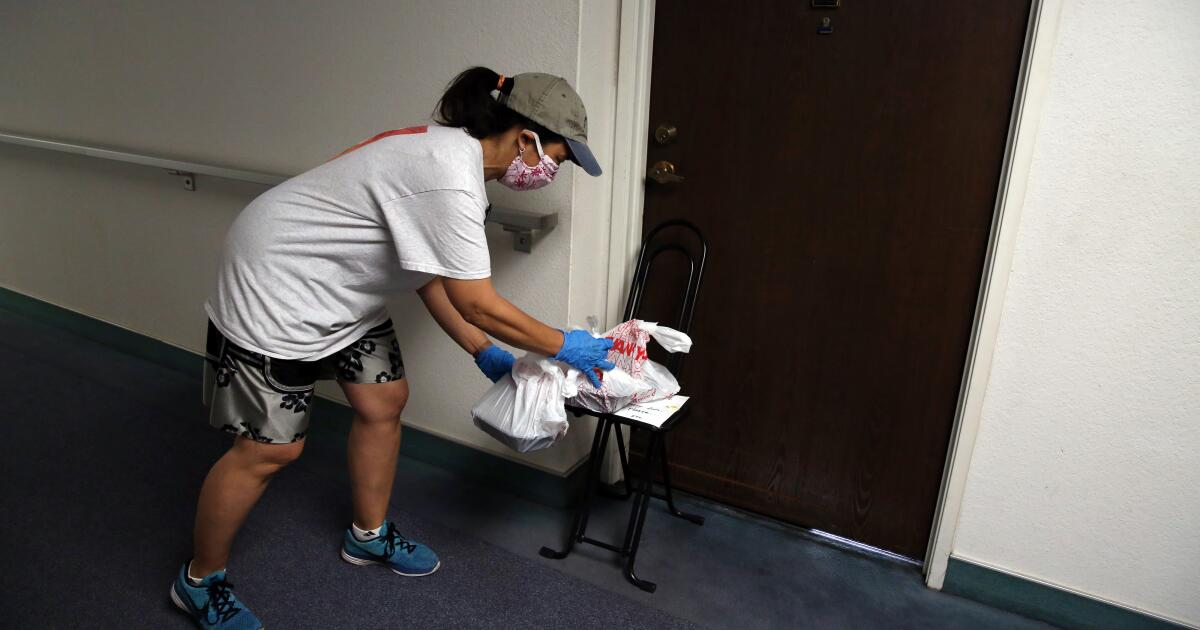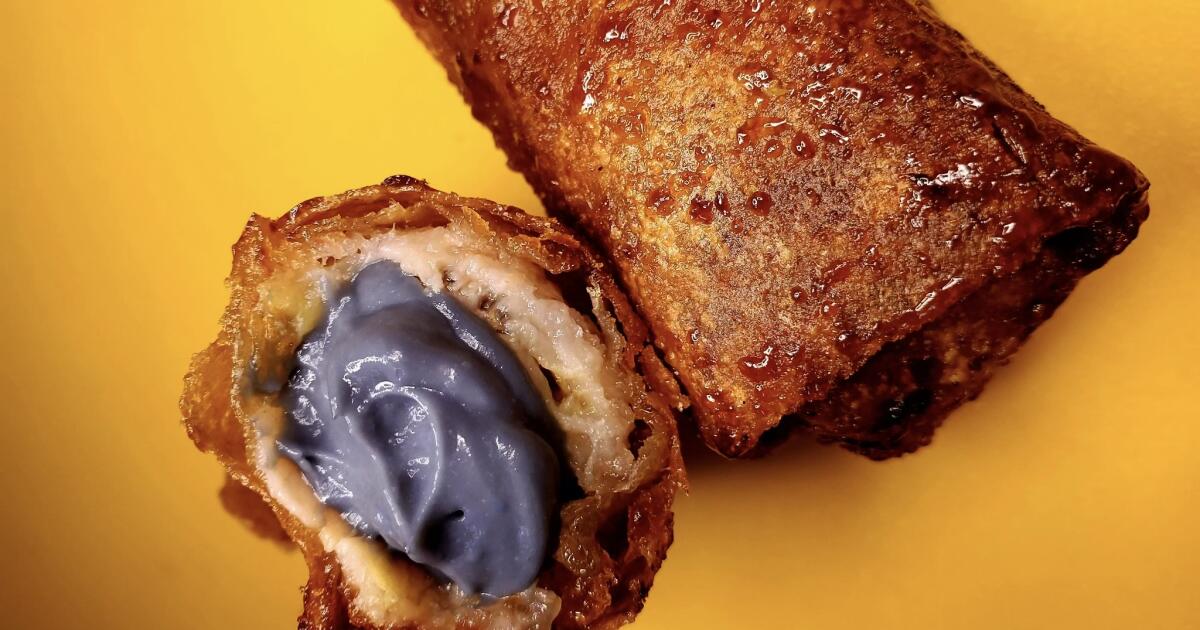The news spread like wildfire and it was all about grilled chicken: the beloved Koo Koo Roo restaurant chain is returning under new ownership.
The prolific Los Angeles-based chain operated from 1988 to 2014, and while the specialty was skinless rotisserie chicken, its countless sides, salads, sandwiches and other items from the cult-like restaurant have resonated in the minds of fans for years since the last store closed in Santa Monica a decade ago.
“I feel like I’m the guardian of something very important,” said new owner and CEO Daniel Farasat. “I’ve been very protective of the brand and making sure we bring it back the right way… It’s really an ode to Los Angeles.”
Farasat, who acquired the company in 2022, has been planning the Koo Koo Roo comeback, and while many of its plans are still in the works (like specific menu items and the first brick-and-mortar location), it knows it will serve the chain’s original recipes, along with some new items, with a focus on natural, locally sourced foods.
Though the chicken chain won't be making a full return until late next year, fans will be able to get their first taste of it on Oct. 5 at ChainFest, where it will appear alongside more than a dozen other chains and brands, including White Castle, Trader Vic's and Red Lobster.
The fun-filled event is hosted by some of the biggest names in entertainment, including BJ Novak, Chrissy Teigen and chef and TV food personality Tim Hollingsworth. The chain offers gourmet versions of fast-food dishes from some of the world’s biggest restaurant chains, sometimes through pop-up events at its headquarters in Virgil Village and other times through ChainFest, the company’s signature, extended, ticketed festival.
Koo Koo Roo's new owner said the response since the festival was announced Tuesday has been “huge,” with thousands of social media interactions, countless direct messages, hundreds of comments, texts from people she hasn't spoken to in a long time and phone calls for meetings.
Some of those responses come from former Koo Koo Roo employees who volunteered their institutional knowledge or offered to come back on board.
Farasat's memories of the chicken chain span decades, from his younger years, when he would go there with his family, to high school, when he would sneak out after school or soccer games with his friends. As an adult, he would often stop by during his lunch breaks after work.
During the pandemic, Farasat, a real estate investor and developer, was looking for a new project when he read that Koo Koo Roo’s parent company was liquidating.
He searched LinkedIn profiles to try to locate anyone who might be connected to the company and sent out messages blindly. About six months later, in 2022, he acquired the chain’s intellectual property, which includes all of Koo Koo Roo’s original recipes, its logos, its operating manuals — everything that’s still archived at the defunct but iconic restaurant.
Koo Koo Roo is his first restaurant. His wife, Hila (formerly of the Sprout restaurant group), is helping to manage the restaurant’s operations while his brother, Raphael, CEO of branding agency Truffl, is in charge of the visual makeover.
They are planning community events and pop-up events to reintroduce Koo Koo Roo under their new ownership, then hope to open with one restaurant in late 2025 and hopefully move on to opening more.
“When Koo Koo Roo started, everything was handmade, hand-marinated,” he said, “and that’s the Koo Koo Roo we’re trying to bring back.”
The first Koo Koo Roo
Brothers Ray and Mike Badalian opened their first Koo Koo Roo in 1988 in Koreatown, where lines for grilled skinless chicken sometimes stretched down the block.
That year, former LA Times food writer Rose Dosti praised Koo Koo Roo for its healthy cuisine that didn't sacrifice flavor, calling it “something to brag about” and writing:“This could be the start of a new trend in fast food chicken. Others are likely to respond to the cu-cu-ru of the times.”
The chain, a precursor to the fast-casual movement, used to be considered “healthier fast food,” though its owners hoped not only to cook without butter or oil, but also to add a touch of class with non-plastic cutlery and flowers on the tables. These details seemed to work, and the number of followers and restaurants grew quickly.
Kevin S. Relyea, left, president and CEO of Family Restaurants Inc., and A. William Allen III, CEO of Koo Koo Roo California Kitchen, sit at Koo Koo Roo in Santa Monica in 1998.
(Luis Sinco/Los Angeles Times)
But the beloved chicken chain struggled financially for years, navigating The highs and The minimums of public tradeacquiring other companies, including Hamburger Hamlet and Color Me Mine, and transferring or merging with multiple conglomerates as names changedpursued profitability and planned expansions along both coasts.
The chain declared bankruptcy in 2003 and was later acquired by Magic Brands LLC. In 2010, That company also filed for bankruptcy and closed 10 Koo Koo Roos, leaving Santa Monica, Larchmont and West Hollywood standing. The company cited the high cost of commercial rent in Southern California, a competitive market and frequent menu changes that confused customers.
Luby's Restaurant Corporation bought Koo Koo Roo In 2010, the company closed all three of its locations, and in 2014 it converted the last remaining Koo Koo Roo in Santa Monica into a Fuddruckers. When it closed, the last location offered meatballs, burgers, meatloaf and chicken burritos, as well as chicken dishes, sides and salads.
The Farasat find it difficult to decide which items to bring back.
“If you look at a menu from 1988, 1993 or 2010, it’s a very different menu,” said Daniel Farasat. “We’ve had a tremendous response from people since we announced the launch, and a lot of it has to do with people’s favorite dishes… We’re trying to take community feedback into account as we finalize the final menu.”
Your favorite dishes (the chicken sandwiches, the chicken plate and the Caesar salad) could very well end up on the menu, as could the sides.
The menu for its ChainFest debut in October is also still in development, but Nicholas Kraft, creative director at Chain and a lifelong Koo Koo Roo fan, hinted that there could be multiple iconic sides on offer.
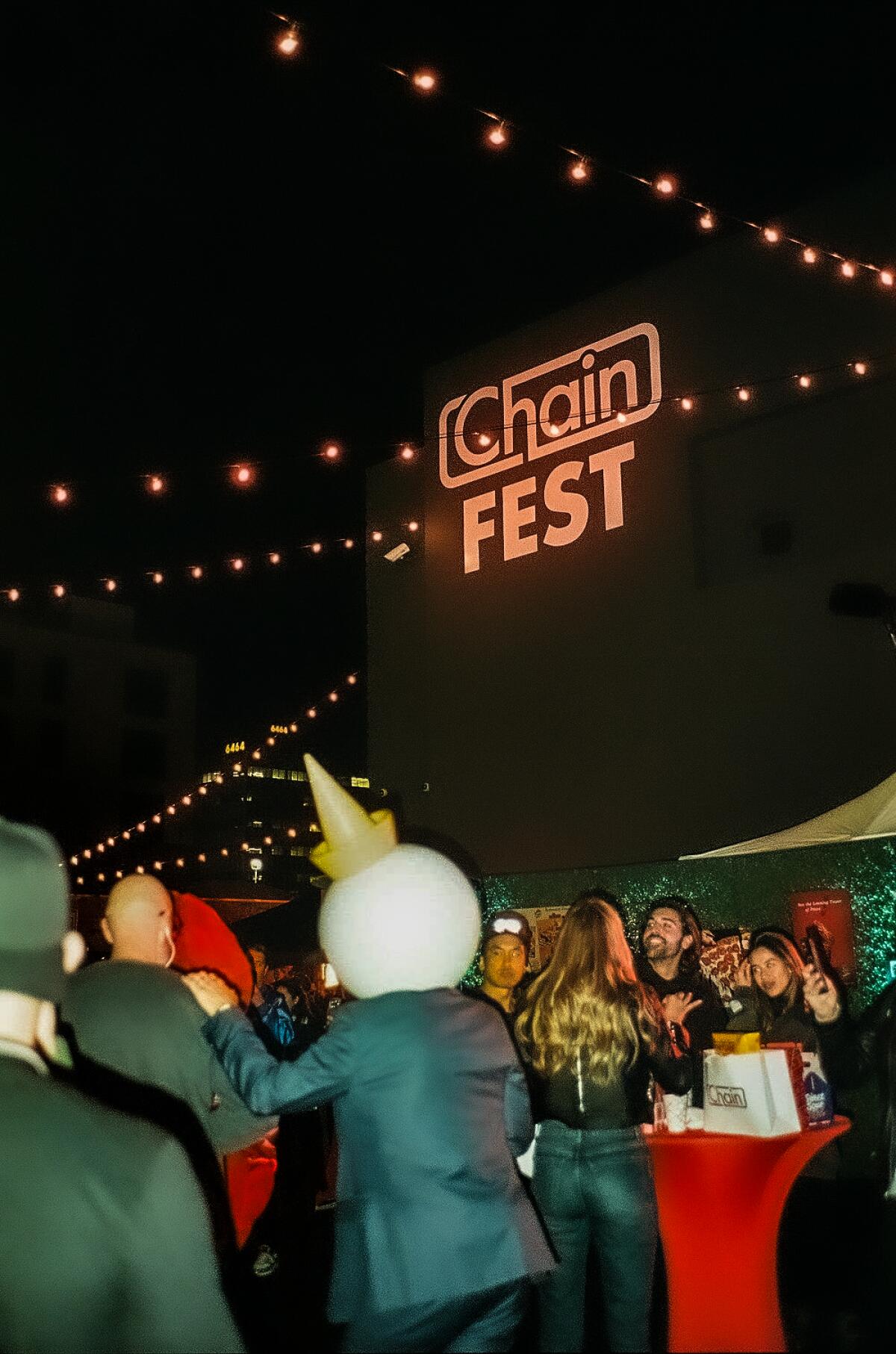
ChainFest, photographed in 2023, serves collaborative dishes, unique bites, and sneak peeks of items from some of the world's largest restaurant chains.
(Chain)
Months ago, when Chain jokingly posted on Instagram that the goal of their mission was to take back Koo Koo Roo, the flood of DMs in response stunned the team. They immediately sought out the new owners for a possible collaboration. The Chain team sees their pop-up events and festivals as “a platform for pop cuisine.”
“There’s a whiteboard with a lot of dreams on it at Chain,” Kraft said. “How realistic we necessarily think they are is another story, but once we started getting all these responses and realized that someone owns the rights to Koo Koo Roo, we were faced with the next mission: How can we at least just politely yell at them to hurry up with the return?”
Koo Koo Roo was originally scheduled to appear only in the VIP section of ChainFest, but according to Kraft, the overwhelming response this week is causing them to reconsider the decision and possibly move him to the general admission area.
ChainFest will also resurrect another bygone L.A. institution: Trader Vic's, the iconic tiki bar that popularized the mai tai, will reopen with the help of Filipinotown's historic Thunderbolt bar.
Other entrants include White Castle, which will offer a collaborative version of its 1921 burger with a special sauce from Hollingsworth; Red Robin, which will offer a Hollingsworth version of the chain’s spicy burger as well as its triple-pickled onion ring creation; Panda Express, which will preview a new item; and more.
ChainFest will take place on October 5th at the ROW DTLA complex in the Arts District, with lower Ticket prices For first-time buyers. Tickets go on sale Friday; General admission tickets include snacks from each station, access to entertainment and an open bar for $89.99 to $149.99. VIP tickets include unlimited snacks, an open bar, VIP-only dishes and access to exclusive areas for $299.99 to $499.99.

